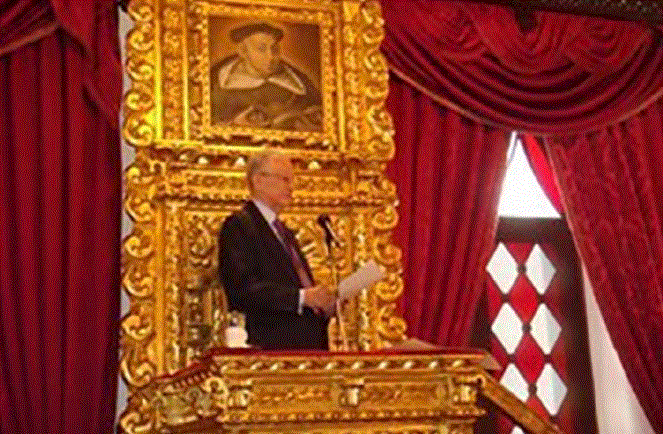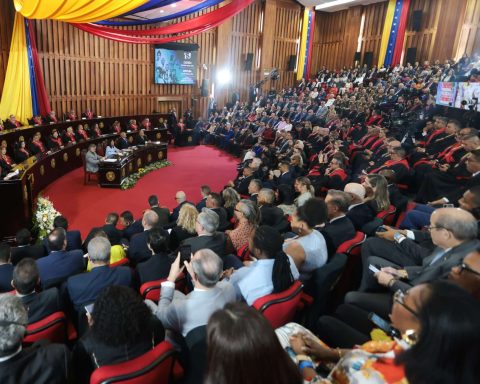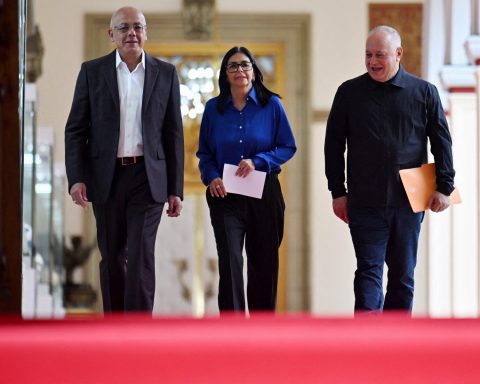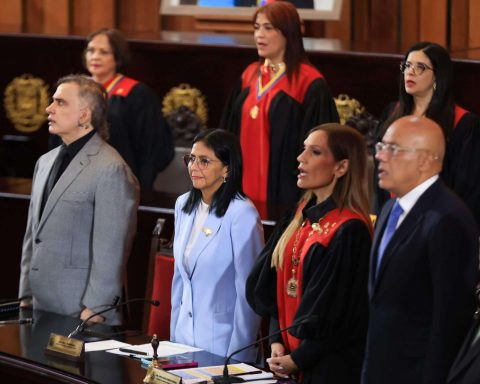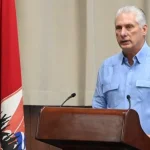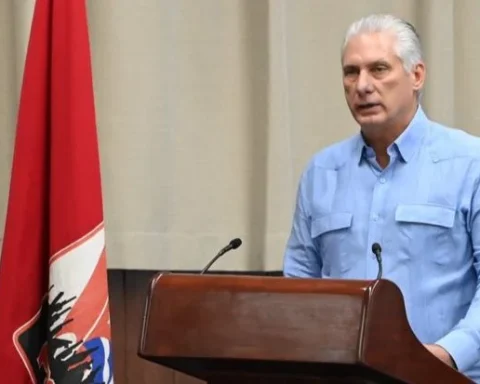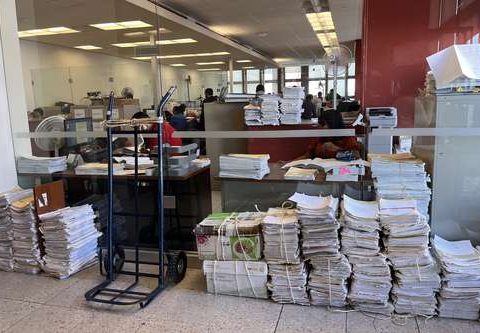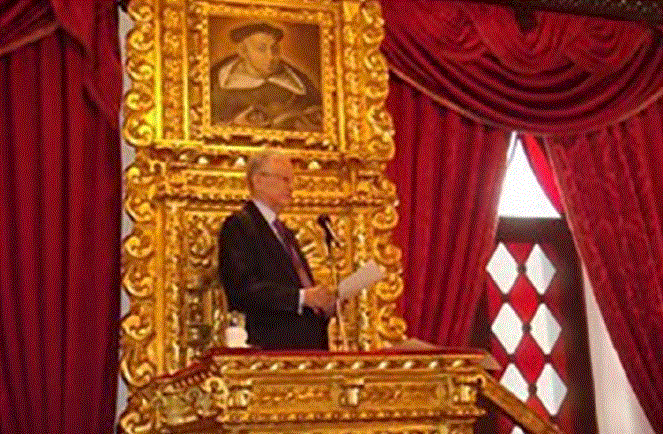
On April 25, Professor José Guillermo Andueza Acuña, one of the most outstanding constitutionalists in our country, passed away. His republican values, his family life, his university and political career left their mark on the academic world.
Andueza was my undergraduate professor of Principles of Public Law and Constitutional Law in 1969 at the Universidad Católica Andrés Bello. In 1980 I was his student again in the doctorate at the Central University of Venezuela in the subject of Latin American Political Regimes. In both courses, Professor Andueza was characterized by his admirable punctuality, expository clarity and for making the complex clear.
In undergraduate he stood out for being a teacher who stimulated reflection and critical thinking among his students. He did not sponsor rote studies, because caletre atrophies the ability to think. When evaluating, he formulated the questions in such a way that it was necessary to respond favoring reflection, based on the theoretical knowledge that he imparted. He contrasted his Cartesian style with that based on the mechanization of teaching. But he also stimulated inductive reasoning, starting from concrete problems. I can affirm without hesitation that he was not an authoritarian professor, but rather tolerant of positions other than his own, as long as they were based on theoretical analysis and coherent reasoning.
He was dean of the Faculty of Legal and Political Sciences of the Central University of Venezuela and director of the Center for Postgraduate Studies of the same faculty. He was, then, an integral ucevista. He was also a professor at the Andrés Bello Catholic University and dean of the José María Vargas University Law School.
Andueza also exercised public office under the mantle of probity. It is worth remembering that in 1981 he resigned from the position of Minister of Justice, because “his salary was not enough to cover the expenses of a family as large as his.” These ethical values deserve to be remembered at a time when corruption has become one of the most prominent vices of the moment. There is a culture of corruption that seems overwhelmed and uncontrolled due to the lack of institutional controls. My respect and admiration for Professor Andueza encouraged me to dedicate my first book to him, The demand, that I published in 1987, on the occasion of the approval of the new Code of Civil Procedure.
Subsequently, fate gave me the opportunity to reply to his incorporation speech as a member of the Academy of Political and Social Sciences, to occupy chair number 2, which had become vacant due to the death of former President Rafael Caldera. Andueza was elected in session on April 6, 2010 and joined on July 19, 2011. He presented a paper entitled “The constitutionalization of authoritarianism”, in which he demonstrates how democracy is distorted thanks to the concentration of power and control. of the judges. This type of militaristic authoritarianism has become an obstacle to the freedom of Venezuelans. It is also a distortion of the presidential system, which Andueza addresses from the constitutional provisions that support this form of government.
Beyond the norm, it highlights that the interpretation of the constitutional provision is aimed at propping up the abuse of power, since the institutions, which should be the democratic balance, have lost their meaning by being subjected to political power. To illustrate the general framework of authoritarianism, Andueza examines the historical origins of what the doctrine calls façade constitutions. Here he echoes the lapidary words of Karl Lowenstein, who warned that constitutions were increasingly used “to camouflage authoritarian and totalitarian regimes.”
In the Venezuelan case, the acute intelligence of Laureano Vallenilla Lanz distinguished between the paper constitution and the effective constitution. The first contains the abstract declarations; the second is the one that is applied in reality. Despite the constitutional postulates, the real constitution is the one imposed by the authoritarian regime. The autocrat exercises power as he pleases, without institutional controls. The conflict between form and substance is a drama in the Venezuelan legal system. It is about the eternal quest to find the appearance of legitimacy by writing or “interpreting” the Constitution.
Militaristic authoritarianism is a peculiar way of exercising power, which strengthens the wishes and whims of the autocrat, who finds no institutional resistance in his authoritarian desire. And, for this reason, the legislative task must be limited to a healthy interpretation of the constitutional text. However, Andueza demonstrates that the legislative task, far from adapting to the text of the Constitution, rather departs from its spirit and reason, which is observed in regard to the Organic Laws.
Militaristic authoritarianism favors a simulated constitutional order. There is a continuous constitutional fraud that is connected to legal formalism: giving the appearance of legality when deep down it is a constant violation of the spirit of the norm. This is what happens with the formalist system of law: review the form without delving into the truth of the facts. With a façade constitution and without separation of powers, we have an apparent or formal democracy. Deep down there is an authoritarian regime that has turned the principle of alternation into an illusion.
A good example of the aforementioned is what has just happened with the election of the “new” magistrates of the Supreme Court of Justice. According to a chain of legislative and hermeneutic stratagems, magistrates have been appointed who will exceed the 12-year period referred to in article 264 of the Constitution, which states: “The magistrates will be elected for a single period of twelve years.” However, the National Assembly reformed the aforementioned Organic Law of the Supreme Court of Justice and authorized that those who were already magistrates could apply for a new term. In this way it will be possible for at least two of those chosen to spend twenty years on the TSJ. This ratifies that we are facing a facade or paper constitution, because the real constitution is the one imposed by the authoritarian mechanism.
The above approaches are not intended to be a theoretical exercise, but rather the contrast between what the principles of a democratic Republic postulate and the tricks of the authoritarian vision of the constitutional norm. In order to recover the air of freedom and boost republican vigor, a united civil leadership is required, inspired by the stellar figures of 1958. This leadership, with Rómulo Betancourt at the head, was able to impose a long-term political project that allowed the recovery of the democracy.
For all of the above, we must remember, as he deserves, José Guillermo Andueza when we start thinking about the lethal effects of the constitutionalization of militaristic authoritarianism.
